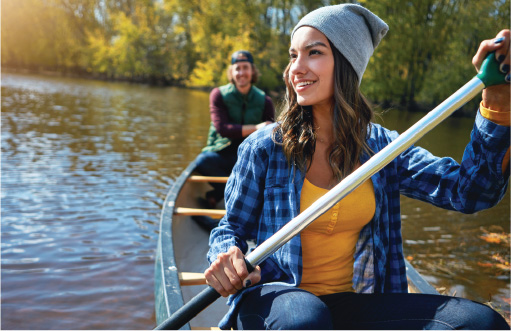
Non-travel Vaccines & Medicine
VACCINES AREN’T JUST FOR VACATIONERS
Every year hundreds of thousands of Canadians contract vaccine-preventable infectious diseases.
HPV, shingles, and pneumonia are just some of the serious non-travel illnesses we can protect you against.
We also provide routine vaccinations for diseases like chicken pox, mumps, measles, and rubella.
Every TMVC location stocks the vaccines you may need on site.

Non Travel Vaccines & Medicine
Chickenpox (Varicella)
WHAT IS IT?
Varicella is a virus that causes the disease chicken pox It never leaves the body and can re-activate to cause shingles.
HOW DO I GET IT?
From other people who have it.
WHAT HAPPENS?
It causes fever, malaise, and a blistering rash The disease can cause neurological complications like encephalitis (an inflammation of a part of the brain) resulting in stroke-like symptoms.
WHAT CAN I DO ABOUT IT?
In the event of an infection, drug therapy can be taken to limit the disease. Immunization is the only prevention.
HPV(Gardasil) Vaccine
WHAT IS IT?
A virus that can cause warts and cervical, oral, and anal cancer.
There are multiple sub-types.
HOW DO I GET IT?
Direct contact with other people and indirectly from items that have been handled by carriers.
WHAT HAPPENS?
It can cause an outbreak of genital warts and longer term can cause some cancers.
WHAT CAN I DO ABOUT IT?
Vaccination is the most effective way of preventing the transmission of HPV.
Influenza
WHAT IS IT?
A virus that infects the respiratory system.
HOW DO I GET IT?
Through droplets spread by people who are infected.
WHAT HAPPENS?
Symptoms vary but at its worst, it can be fatal.
This is especially true for younger children and the elderly, or people with other medical problems.
WHAT CAN I DO ABOUT IT?
There is no effective drug treatment.
Vaccination is the best prevention.
Meningitis ACYW
WHAT IS IT ?
A bacteria that infects the brain
HOW DO I GET IT?
From being around other people that carry the disease
WHAT CAN I DO ABOUT IT?
Antibiotics can be tried but there is a high failure rate The disease can progress so quickly it is often too late Vaccination is the only effective prevention
THE HAJJ AND MENINGITIS
Heading To The Hajj? See here for more information.
Nirsevimab (BeyfortusⓇ) Antibody
What is RSV?
RSV is a common respiratory virus that affects the lungs and airways. Most children will get RSV by the time they are two years old. In some children, RSV can cause a lung infection.
Is RSV serious?
Most children with RSV will have cold symptoms for a couple of days. A small number of children under one year old may need hospital care. More serious infections can develop in children who were born premature, have a chronic health condition, or have an immune disorder.
How do you catch RSV?
RSV is easy to catch and spreads by contact, such as touching, kissing, or shaking hands with someone who is infected. The virus can also last for hours on any surface, like toys, countertops, and tissues.
Your child has an increased chance of catching RSV if they:
- Go to daycare
- Have a sibling in daycare
- Live in a household with 5 or more people
- Are exposed to secondhand smoke
- Are exposed to crowded environments
What are RSV symptoms?
RSV symptoms are similar to cold symptoms:
- Runny or stuffy nose
- Cough
- Fever
- Not feeling hungry
If the virus spreads to the lungs, infections can worsen. Serious infection symptoms include:
- Difficulty breathing, or fast breathing
- Unusual or long pauses in breathing
- Wheezing
- Difficulty feeding
If your child has trouble breathing, this is a medical emergency. Go to your closest emergency room.
How can I protect my child from RSV?
- Clean your hands before touching your child and ask others to do the same. Use soap and warm water or an alcohol-based hand sanitizer.
- Keep your child away from people who are ill. Do not allow family and friends to visit if they are ill.
- Avoid secondhand smoke, people who have recently smoked, and clothes that smell of smoke.
- Do not share personal items like cups, washcloths, and towels with people who are ill.
- Breastfeeding your child helps protect them from catching RSV.
Additional Information
*NO ONLINE BOOKING AVAILABLE*
Specific information will be required before we can administer this medication.
No admin fee, call to book: 1-888-288-8682
Pre-payment required.
Pneumonia
WHAT IS IT ?
A lung infection caused by a variety of bacteria
HOW DO I GET IT?
By inhaling airborne droplets typically spread by people who carry the bacteria or have the disease
WHAT HAPPENS?
The disease usually lasts weeks
Severity can vary and complications include lung abscess and fatality despite treatment
WHAT CAN I DO ABOUT IT?
Vaccination in susceptible individuals is highly effective at preventing common causes of the disease
There are 2 shots available, each protects against multiple types of bacteria
RSV (AREXVY®) Vaccine
What is it?
RSV is a common highly contagious respiratory virus causing infections of the lungs and breathing passages.
How do I get it?
By inhaling airborne droplets typically spread by people that are infected.
What happens?
RSV usually causes mild, cold-like symptoms. However, it can also cause more serious respiratory illness
such as pneumonia, as well as make some illnesses and conditions worse in older adults. RSV is a major
cause of death among seniors.
What can I do about it?
Vaccination is the best prevention. Arexvy®, a non-live (in-activated) vaccine, is available for individuals
over 60 years of age.
Shingles (Shingrix)
WHAT IS IT?
A viral infection caused by the “Varicella” virus.
HOW DO I GET IT?
The Varicella virus causes chickenpox when you first catch it.
But it stays in the body for years and can reactivate to cause shingles.
You can’t get shingles if you haven’t had chicken pox.
WHAT HAPPENS?
A painful blistering rash usually on one side of the body that can cause months of pain.
If it affects the ear or eye it can be even more serious.
WHAT CAN I DO ABOUT IT?
Drugs like Valtrex can be used to limit the disease if taken quickly after the rash appears but the only effective prevention is the shingles vaccine.
Tetanus Diphtheria Whooping Cough/Pertussis (TdaP)
WHAT IS IT?
Tetanus is a toxin produced by a bacteria that lives in soil.
Diphtheria is caused by a bacteria that infects the respiratory system.
Pertussis is a type of bacteria that causes whooping cough.
HOW DO I GET THESE DISEASES?
Tetanus: From cuts that get dirt in them. Eg: falling off a motorbike and getting ‘road rash’.
Diphtheria: From being around other people who carry the disease.
Pertussis: Droplets spread from people who have the disease.
WHAT HAPPENS?
Tetanus: Can cause severe muscle spasms and admission to intensive care is often required.
Symptoms can last for weeks.
Without proper care, it can be fatal.
Diphtheria: Can be treated with antitoxin and antibiotics.
Untreated it can be fatal.
Pertussis: Fever, malaise, and a barking cough which can last weeks.
WHAT CAN I DO ABOUT IT?
Vaccination is an effective prevention for tetanus, diphtheria, and pertussis.
A booster should be given every 10 years.

SHINGLES
1 in 3 Canadians over the age of 50 will suffer from shingles. The new Shingrix vaccine is an extremely effective defence. We are BC’s #1 provider of Shingrix.
GOOD TO KNOW PEOPLE ARE MORE LIKELY TO
GET A FLU SHOT WHEN THERE’S A CLINIC IN THEIR WORKPLACE
HPV
70% of people who are sexually active will be infected with at least one type of HPV at some time in their lives. Gardisil 9 protects against 9 types of HPV.